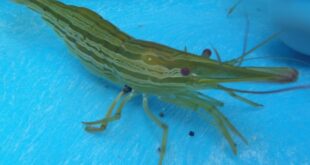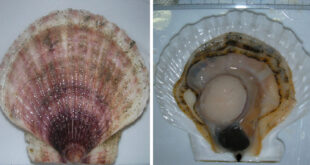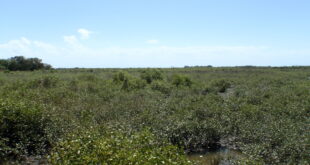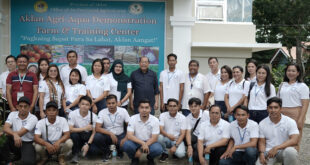By Development Communication Section / ME Aldon

SEAFDEC/AQD has developed a technology of producing seaweeds cultivars by micropropagation, a method of tissue culture.
SEAFDEC/AQD has started disseminating this technology through training and on site demonstration. Additionally, the cultivars were tested on farms in different sites in the country like Bohol, Tawi-tawi, Palawan and Guimaras. Farm trial results show remarkably high growth rates of Kappaphychus plantlets from tissue culture ranging from 6-10% per day.
This technology is now ready for commercialization to enhance the seaweed industry of the country.
Seaweed farming started in the 1970s in Mindanao by simply tying seaweeds in lines and now has become a giant industry. Seaweed farming is a source of livelihood among fisherfolks in coastal barangays involving approximately 120,000 farmers (BFAR Seaweed Road Map 2016). In 2015, the revenue from seaweeds stood at USD 203.4 M, according to the Seaweed Industry Association of the Philippines.
Seaweed is the number one aquaculture product by volume followed by milkfish and tilapia (BAS 2016).
The bulk of our seaweed export is composed of Kappaphycus and Eucheuma. These are red seaweeds which are a source of carrageenan. Carrageenan is used as a thickener, binder, stabilizer, suspending agent in food products and has biomedical and industrial applications.
The decline in the Philippine seaweed production in the last decade was mainly due to poor quality of seedlings and diseases. This could be due to continuous cutting of “seedling” since seaweed farming started. Production of fast growing “seedling” became a challenge. The Philippines used to be the number one seaweed producer in Southeast Asia but Indonesia rapidly overtook the Philippines in terms of seaweed production in the last decade. The widespread adoption of the new technology developed by SEAFDEC/AQD, in collaboration with concerned government agencies, particularly the Bureau of Fisheries and Aquatic Resources, will boost the seaweed production and propel the industry back to the glory that was.
 SEAFDEC/AQD Southeast Asian Fisheries Development Center | Aquaculture Department
SEAFDEC/AQD Southeast Asian Fisheries Development Center | Aquaculture Department



